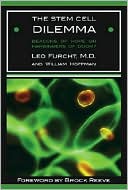Category Books
- Fiction Books & Literature
- Graphic Novels
- Horror
- Mystery & Crime
- Poetry
- Romance Books
- Science Fiction & Fantasy
- Thrillers
- Westerns
- Ages 0-2
- Ages 3-5
- Ages 6-8
- Ages 9-12
- Teens
- Children's Books
- African Americans
- Antiques & Collectibles
- Art, Architecture & Photography
- Bibles & Bible Studies
- Biography
- Business Books
- Christianity
- Computer Books & Technology Books
- Cookbooks, Food & Wine
- Crafts & Hobbies Books
- Education & Teaching
- Engineering
- Entertainment
- Foreign Languages
- Game Books
- Gay & Lesbian
- Health Books, Diet & Fitness Books
- History
- Home & Garden
- Humor Books
- Judaism & Judaica
- Law
- Medical Books
- New Age & Spirituality
- Nonfiction
- Parenting & Family
- Pets
- Philosophy
- Political Books & Current Events Books
- Psychology & Psychotherapy
- Reference
- Religion Books
- Science & Nature
- Self Improvement
- Sex & Relationships
- Social Sciences
- Sports & Adventure
- Study Guides & Test Prep
- Travel
- True Crime
- Weddings
- Women's Studies
The Stem Cell Dilemma: Beacons of Hope or Harbingers of Doom? »

Authors: Leo Furcht, William Hoffman, Brock Reeve
ISBN-13: 9781559708722, ISBN-10: 1559708727
Format: Hardcover
Publisher: Arcade Publishing
Date Published: April 2008
Edition: (Non-applicable)
Author Biography: Leo Furcht
Leo Furcht, M.D., is Allan-Pardee professor and chairman of the Department of Laboratory Medicine and Pathology at the University of Minnesota Medical School. He lives in Minneapolis.
Book Synopsis
Today's scientists are showing us how stem cells create and repair the human body. Unlocking these secrets has become the new Holy Grail of biomedical research. But behind that search lies a sharp divide. Stem cells offer the hope of creating or repairing tissues lost to age, disease, and injury. Yet because of this ability, stem cells hold the potential to incite an international biological arms race. THE STEM CELL DILEMMA will tell you everything you ever wanted to know about stem cells: what they are, how they work, and why their use has become so controversial. We are standing at a scientific crossroads, the likes of which the world has never seen. It is a moment that will change forever the practice of medicine and the future of life as we know it.
Kirkus Reviews
Timely, levelheaded investigation of stem-cell medicine. Stem cells possess the power to regenerate and repair body tissue, Furcht and Hoffman (both: Laboratory Medicine and Pathology/Univ. of Minnesota Medical School) remind us. Some of that power has been tapped, for instance, in countering bone-marrow failure. But stem cells' theoretical potential to regenerate and restore all of the body's tissues, particularly via embryonic stem cells, will be fully realized, if ever, only after extensive research. Nothing is starry-eyed in this plainspoken, well-tuned text. Although researchers are unveiling the mystery of stem cells everyday, and much lies in the province of possibility, the authors aver that those possibilities are based on good science, which they capably explicate for the reader. Their treatment of the stem-cell issue is thoroughgoing, acknowledging that embryonic stem-cell research raises bioethical as well as biological questions, and that economic considerations play a role in its development. They treat the ethical issue with respect, applying a cross-cultural perspective to everything from designer babies to the commodification of life. They make a case for continued research with some intelligent form of governance: "Ethical lines move all the time within the polity, subject to the dynamics of the polity-that is, politics." The denial of federal funds, they fear, will contribute to the brain drain of researchers from the United States, despite infusions of state, philanthropic and venture capital. They also warn of the technology's dual use: "To understand the immune system enough to re-create it is to possess the potential biological power of annihilation"-a threat onlyknowledge can check. Noting that the biorevolution gives humankind a potentially vast power to expand the boundaries of life, the authors ask, "Are we . . . prepared to understand that power, seize it, and use it wisely?" Their cogent survey gives readers the tools to address that daunting question. First printing of 20,000
Table of Contents
Preface xxi
Timeline xxxi
Glossary xliii
Prologue: Into the Cave lvii
Agents of Hope 1
Diseases and Cancers of the Blood
Heart Disease
Diabetes and Other Autoimmune Diseases
Spinal Cord Injury and Nervous System Diseases
Universal Donor Cells
Architects of Development 35
Stem Cells 101
A Brief History of Regenerative Science
Closing the "Regeneration Gap"
The Genetics of Stem Cells
Cellular Aging and Immortality
Gastrulation and a Womb with a View
The Future of Regeneration
Challengers of Ethics 75
Metaphorically Speaking
Clarifying Cloning
Designer Babies
Using Surplus Embryos
Life and Death on the Moral Compass
Bioethics Commissions
Barometers of Politics 115
Public Opinion and Corn-Pone Politics
Cloning and the United Nations
Stem Cells and the Law
Are Humans Patentable?
American Exceptionalism
Objects of Competition 145
Is America Losing Its Edge?
Clusters of Innovation
California
New Jersey
Massachusetts
Wisconsin
Competitors Abroad
England
Singapore
South Korea
China
Patient Advocacy Goes Global
Free Exchange of Stem Cell Know-How
Harbingers of Destruction 195
Immunity in the Age of Bioterrorism
Military Research and Development
A Matter of National Security
An Immune System in aBottle
Project BioShield
The Future of Immunity
Theoretical Possibilities of Death
Controlling the Power of Stem Cells
Epilogue: Beyond the Darkness 233
Acknowledgments 243
Bibliography 245
Index 271
Subjects
 Health
Health  Medical Procedures & Consumer Education
Medical Procedures & Consumer EducationScience & Nature
 Biology
Biology  Biology - Molecular Biology
Biology - Molecular BiologyScience & Nature
 All Science & Nature
All Science & Nature  Biology & Life Sciences
Biology & Life SciencesNonfiction
 Science & Nature
Science & Nature  Biology
BiologyNonfiction
 Science & Nature
Science & Nature  All Science & Nature
All Science & Nature
